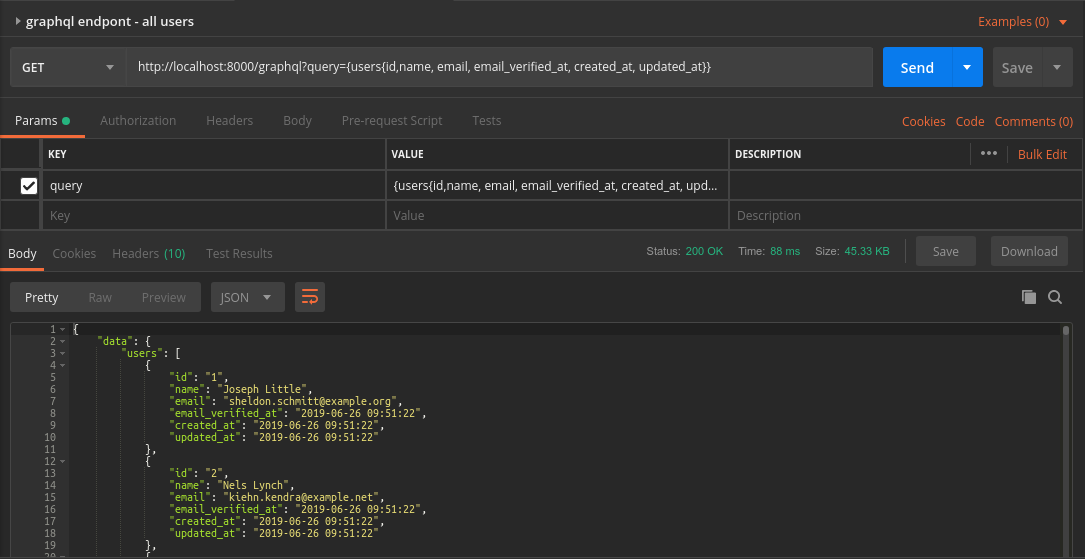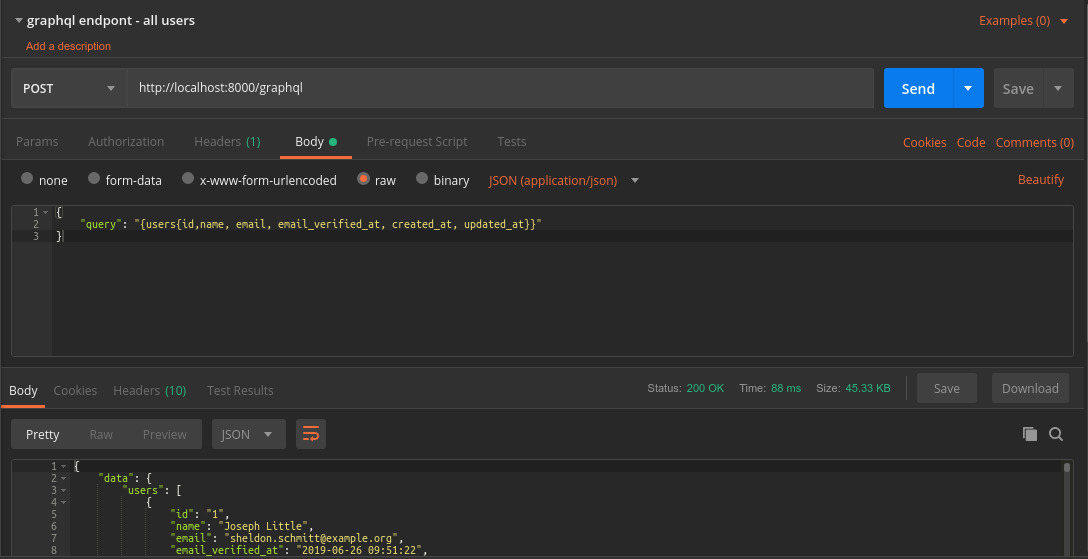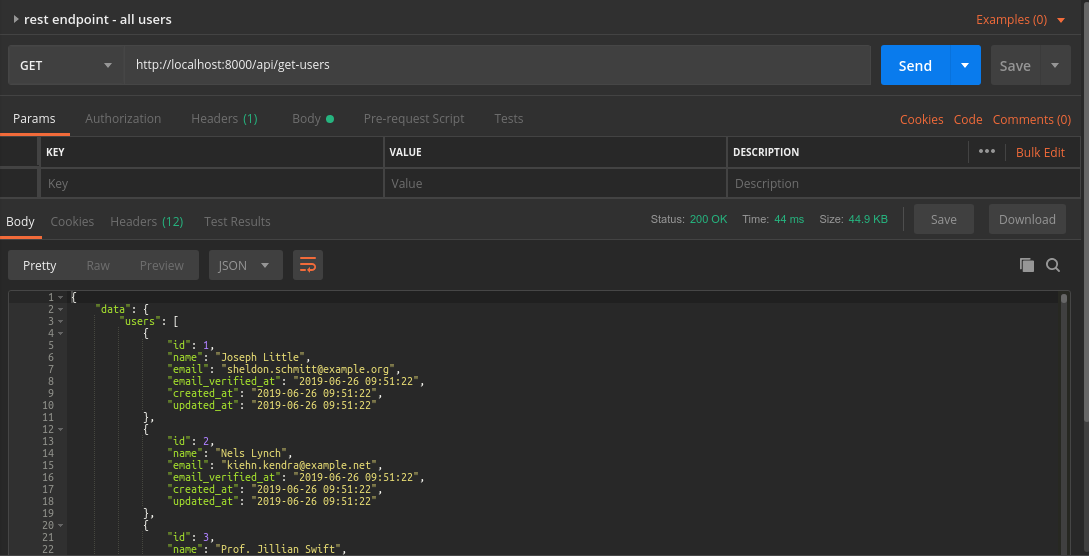I wanted to test the response times of a GraphQL endpoint, and a RESTful endpoint as I haven't ever used GraphQL before, and I am about to use it in my next Laravel project.
So I am using Lighthouse PHP package to serve a GraphQL endpoint from my Laravel app, and also I have created a RESTful endpoint.
Both endpoints(GraphQL and RESTful) are intended to get all Users(250 users) from my local Database.
So based on the test what I have noticed here is that, when I tested this both endpoints on Postman, the RESTful endpoint response is faster than GraphQL endpoint.
Can I know why GraphQL endpoint's response takes more time than RESTful while both endpoints are getting same data?
GraphQL endpoint result for GET request (response time: 88ms)

GraphQL endpoint result for POST request (response time: 88ms)


